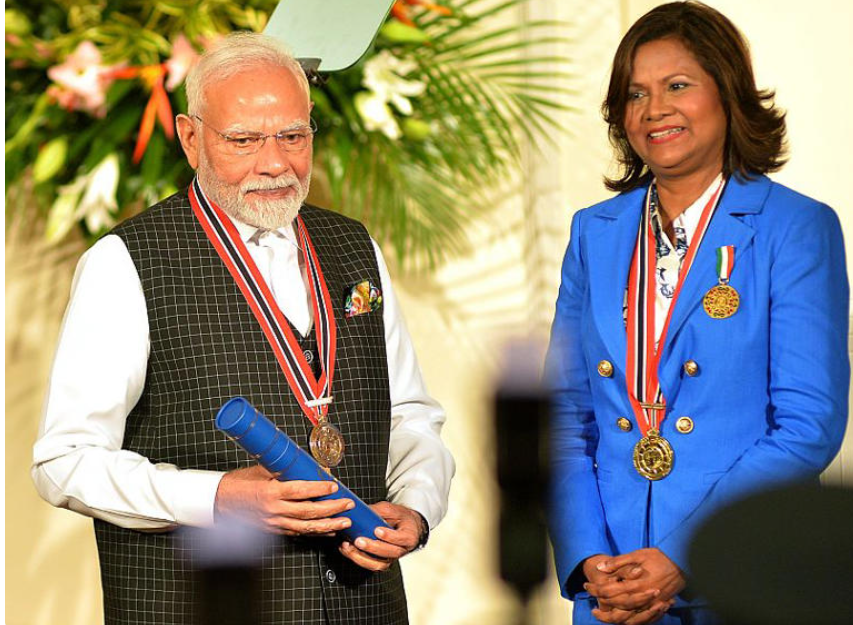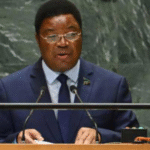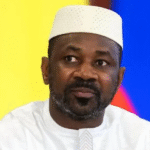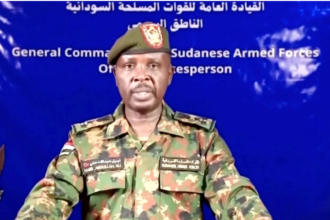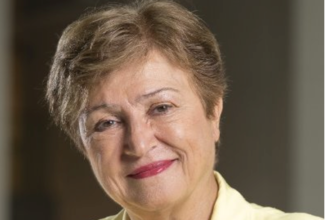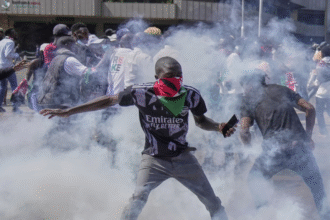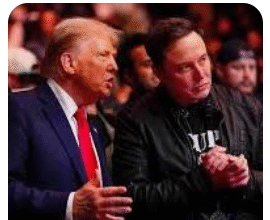By Jean Durand
PORT OF SPAIN, Trinidad and Tobago – Indian Prime Minister Narendra Modi concluded a two-day official visit to Trinidad and Tobago on Friday, hailing “great potential” in bilateral ties and pledging continued trade and investment. Addressing the nation’s parliament, Modi emphasized a shared vision for the Global South, stating, “It’s time for us to work together to give the global south its rightful seat at the table. For us there are no limits to our cooperation with you.”
The visit, Modi’s first official trip to the twin-island Caribbean country, aimed to boost investment across key sectors including energy, health, security, and technology. The Prime Minister highlighted opportunities for collaboration ranging from the development of new digital artificial intelligence tools to agriculture, asserting that trade between the two countries was “only set to grow with human development at the centre.”
Trinidad and Tobago’s Prime Minister Kamla Persad-Bissessar welcomed Modi’s commitments, which included investments in medical, energy, and technological infrastructure. “This visit is more than just diplomacy. It marks a new dawn,” Persad-Bissessar said, adding that India and Trinidad and Tobago “will now work as strategic partners.” She also noted ongoing efforts to renew bilateral trade and investment agreements, with Trinidad and Tobago slated to expand exports to India.
Modi underscored the deep historical and cultural connections between the two nations, which he described as a “powerful symbol” of fraternity and trust. More than 35% of Trinidad and Tobago’s 1.4 million inhabitants are East Indian, descendants of indentured workers brought from India during the colonial era. “Both our nations rose from the shadows of colonial rule to write our own story,” Modi remarked. “The legacy of shared heritage and mutual respect continues to guide our partnership.”
While Modi was warmly received by many in the country’s Hindu population (which constitutes about 18% of the population), his visit drew sharp criticism from some within Trinidad and Tobago’s Muslim community (making up 5% of the population).
On Wednesday, the Anjuman Sunnat-ul-Jamaat Association (ASJA) expressed “deep and principled concern” after Modi was awarded the prestigious Order of the Republic of Trinidad and Tobago. In a statement, ASJA announced its intention to write to the Prime Minister’s office and the Indian High Commission to convey its apprehension regarding the legitimization of a figure they believe has emboldened religious intolerance in India and targeted the Muslim minority.
The organization specifically cited the revocation of Kashmir’s special status and the 2002 Gujarat riots, which resulted in the deaths of over 1,000 people, predominantly Muslims. “We cannot ignore Mr. Modi’s political legacy and its ramifications for Muslim communities globally,” ASJA stated.


